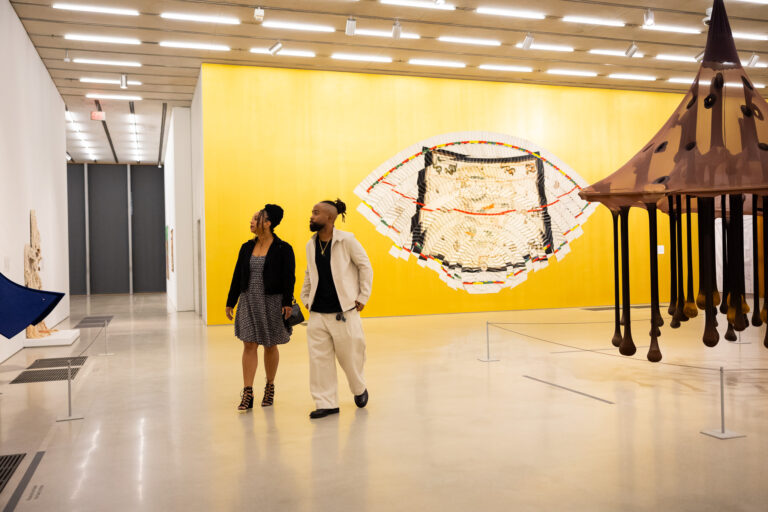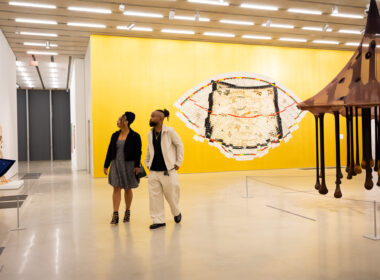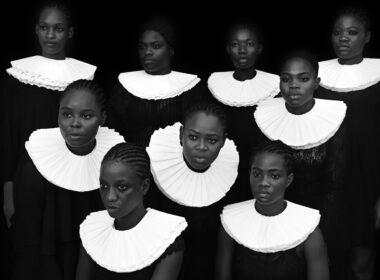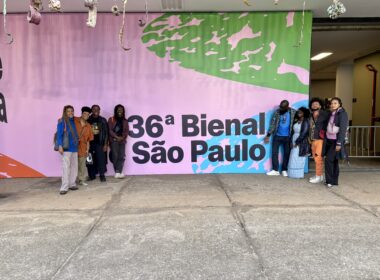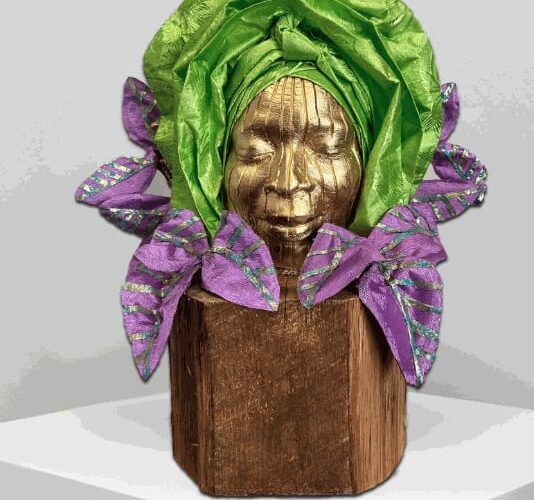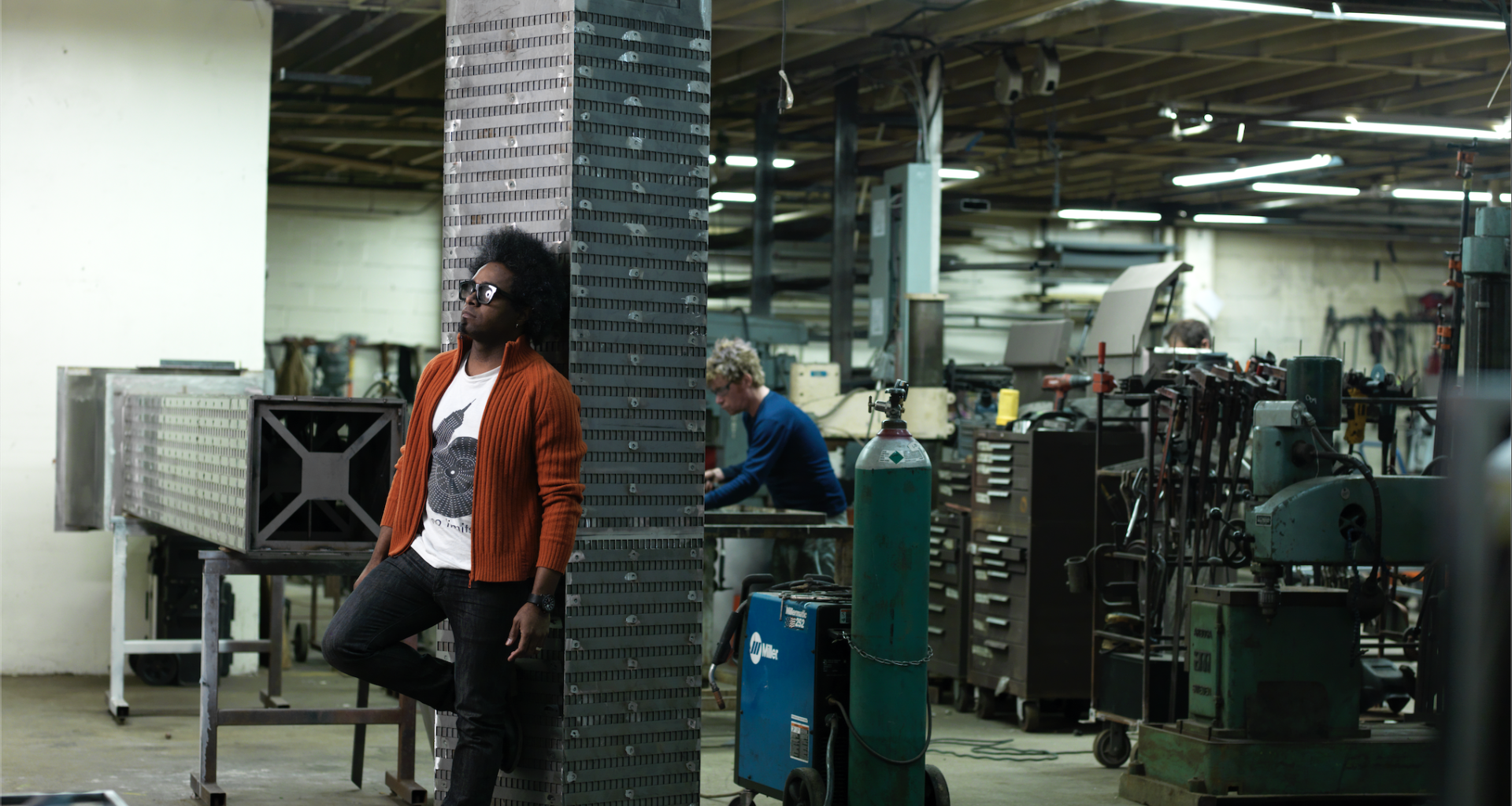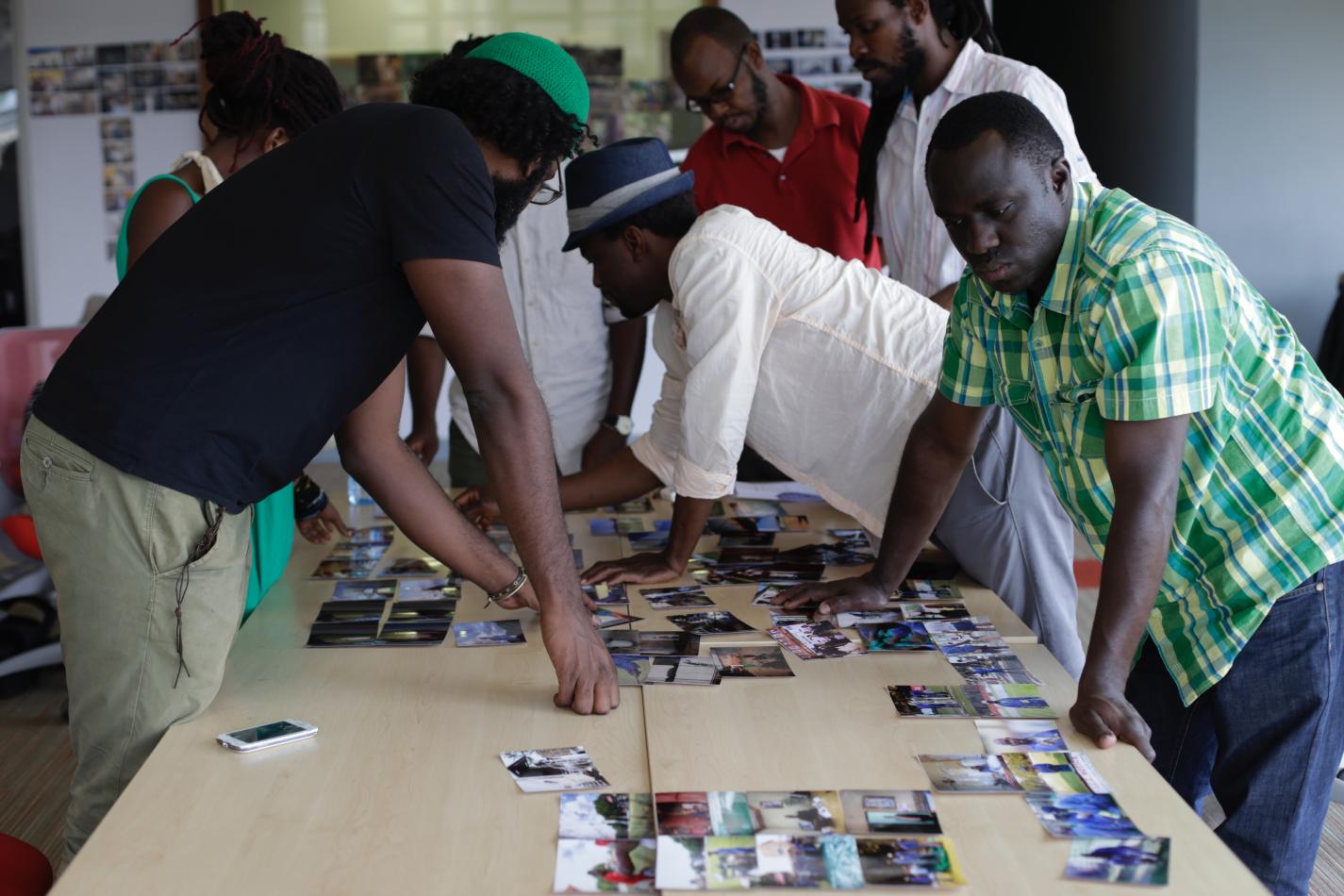Monique Meloche Gallery is pleased to present a solo booth featuring works by Nigerian artist Layo Bright at Art Basel Hong Kong. The works on view use novel material intervention that speak to notions of memory, legacy, and migration.
Layo Bright is a Nigerian-born artist whose works explore themes of migration, inheritance, legacy, and identity through hybrid portraits and mixed media. Concerned with mining personal archives and collective experiences, she interrogates how materials shape perception, culture, and politics, drawing inspiration from plant forms, family, and ancestry. Working with a range of materials such as glass, clay, wood, and textiles, the artist uses novel material intervention to create space for African narratives.
Bright’s relief sculptures merge visages of the artist’s maternal grandmother and great grandmother’s face with foliage, creating hybrid forms inspired by Greek architectural elements called Caryatids (female figures embedded into buildings as architectural support). Made from kiln-formed glass, these forms mirror fragile, yet complex relationships connected to colonial histories. Her 2D glass paintings fuse sheets of glass atop ubiquitous plastic checkered bags often linked with migrants around the world. Colloquially named Ghana-Must-Go Bags or Chinatown Totes, the checkered pattern is disrupted by crushed glass, simultaneously revealing and concealing its pattern. In fusing these materials, Bright considers suppressed histories and the inevitability of migration in the current global climate. The artist’s distinctive ceramic portrait works feature casts of the artist’s face and that of her mother’s and other women relatives, dipped in gold pigment and adorned with Gele fabric carefully fastened in the style of a headwrap, and Ghana-Must-Go bags sculpted into leaves. The sculptures sit atop found wood, emblematic of a Totem and harken back to precolonial artistic practices in West Africa. Taking inspiration from the built and natural environment and her ancestry, Bright’s work examines notions of nurture and legacy.
Taken together, the works on view challenge ideas of representation, visibility, and perception, arriving at new avenues for reflection regarding the formation and influence of legacy. Layo Bright creates a reflective space to consider the potentials achieved when we invest in our ancestral inheritances and to consider a broader commentary on cultural dynamics, identity, memory, colonization, displacement, and migration.
